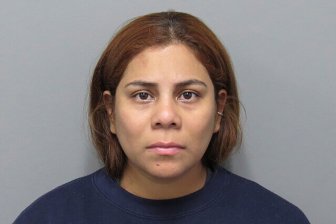For 32 years, the Council of Canadians of African and Caribbean Heritage has put Edmonton youth to the test to see how much they know about Black History in a game-show-styled competition called AfroQuiz.

Kids from grades one to 12 filled the Stanley A. Milner Library auditorium Saturday to compete in the 32nd annual event.
Contestants had the chance to learn about the contributions and achievements made by Black citizens across the world.
Fatsani Nsaliwa has competed in the tournament for the last 10 years. She has won first place in three of the ten competitions.
Nsaliwa has grown out of the age eligibility to compete but has come back to volunteer.
“It’s come a long way after 32 years. That’s gigantic,” she said. “It’s a little more competitive. It’s a little fairer because 17 people trying to press the buzzer to get the answer first is not beneficial,” she explained.
When Nsaliwa first started competing, players competed individually to win the title of AfroQuiz champion. Now, contestants are grouped into teams.
“To be a part of it to see it grow as it sees me grow, it’s treasuring,” she said.
Nsaliwa believes she’s learned more about black history while training for the competitions versus what’s found in the school curriculum.
“It’s concerning because the school education isn’t giving us that,” she explained. “I love it because in school I never got to learn anything. All we knew is that black people came from slavery.”
Contestants have been training every weekend this month.
Topics in this year’s event ranged from the Ghana Empire, Afro-Politan Rennaisance, Resistance renegades and radicals, A gift from Heaven, and For the Culture.
This year’s participants said although they want to win the top prize, it’s the education and the friendships that make the experience worthwhile.
“I get to eat new foods and make new friends,” Grade-five student Maya Garcia said. “It’s fun cheering for my friends on stage even if they are not in the same house as me because I just know that they’re really excited for this.”
“Just learn about past and present black history so I like to keep coming back and learn new things,” Grade-four student Theio Sowa said. “There was a black woman named Dr. Gladys West who created the GPS and lots of people don’t know that.”
Nsaliwa says her experience of Black History education only focused on the hardships of the black community. She says initiatives like these focuses on achievements and instills a sense of pride and appreciation.
“It’s painted us to be the victims for so long,” she said. “Let’s talk about the people that did amazing things that invented amazing things. That are black. That contributed especially to Canadian culture, African culture and Caribbean culture. And make that the forefront.”




Comments